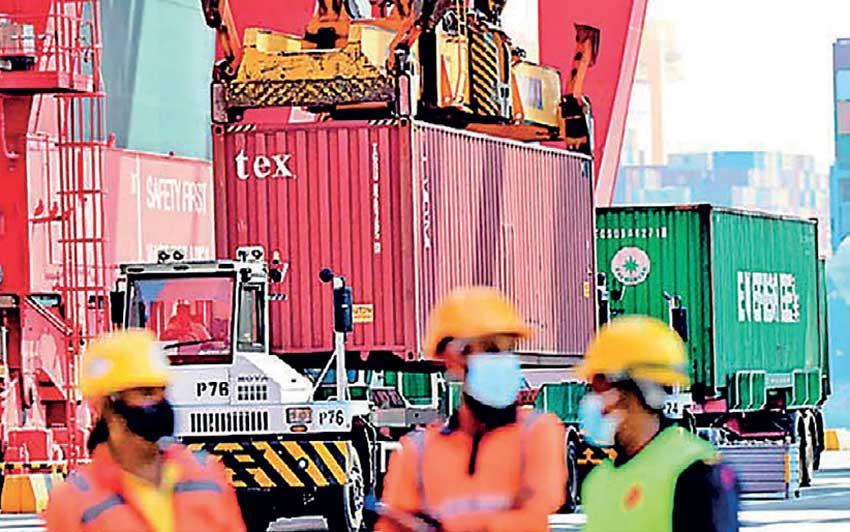Reply To:
Name - Reply Comment

While seeking presidential intervention, the Sri Lanka Shippers’ Council (SLSC) warned that the recent decision by Ports, Shipping and Aviation Minister Nimal Siripala De Silva to remove the regulations on freight charges is likely to hurt the competitiveness of Sri Lanka’s exports and result in higher import costs, fuelling inflation.
In a gazette notification issued on March 3, 2023, De Silva rescinded the regulations issued under Section 10 of the Licensing of Shipping Agents, Freight Forwarders, Non-Vessel Operating Common Carriers and Container Operators Act, No. 10 of 1972, which made the service providers to subject to all applicable charges such as terminal handling charges, full container load and less than container load charges, to be included in all-inclusive freight.
“The rescinding of the gazette has created a ripple effect, which will lead to Sri Lanka’s imports and exports becoming more expensive, due to unethical surcharging, thereby becoming uncompetitive and in turn leading to the loss of its market share in the global market,” the SLSC said in a statement yesterday.
“Imports to Sri Lanka will become more expensive after the removal of the legislation, due to the addition of unethical surcharges as in the past (44-line items were charged) and the breaking of freight cost into many parts, which ultimately ends up being charged from non-contracting parties. The result is the rise in inflation and cost of living in the country,” the
SLSC cautioned.
With the removal of the “pro-market” regulations, the SLSC also cautioned on possible illegal foreign exchange outflows from the country.
“With the rescinding of Gazette No. 2041/10, therein lies the question of whether foreign exchange will flow out of the country illegally, due to the possible introduction of zero freight again and surcharges levied on non-contractual parties, simply because there is no coverage of same, through the law of the land,” it said.
By removing these regulations, the SLSC lamented that the government has endorsed anti-competitive market practices while sending mixed signals to foreign trading partners, who are sensitive to policy inconsistencies.
“The recent frequent changes made to shipping regulations in Sri Lanka through a few gazettes have also raised ambiguity and concern among foreign trading partners, who are sensitive to policy inconsistencies.
With exports being promoted as a solution to the current economic crisis, this is detrimental to attract potential buyers and to maintain current clients,” it said.
In this backdrop, the SLSC sought the intervention of President Ranil Wickremesinghe to reconsider this move and to reinstate Gazette No. 2041/10, dated October 17, 2017 of the Licensing of Shipping Agents, Freight Forwarders, Non-Vessel Operating Common Carriers and Container Operators Act No. 10 of 1972, in the interest of the importers, exporters and public of Sri Lanka. “Sri Lanka Shippers’ Council wishes to reiterate that globally accepted market-friendly legislation should not be overlooked or rescinded without adequate reason, solely based on the urging and requests of a few interested parties, connected to forwarding and shipping agencies, with the motive of profiteering through unethical surcharging at any cost, at the expense of all the positives mentioned above,” the statement noted.